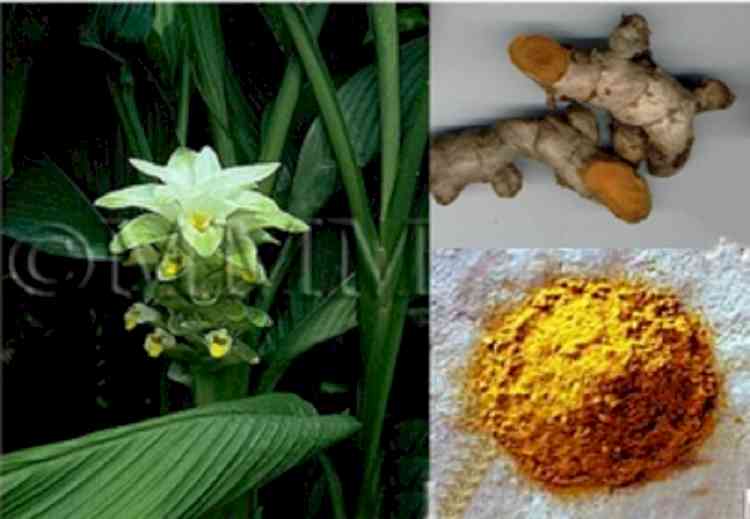LU botanists discover new disease in turmeric
Botanists at Lucknow University (LU) have discovered a new disease in turmeric plant which poses a major threat to its cultivation in India.

Lucknow, Oct 25 (IANS) Botanists at Lucknow University (LU) have discovered a new disease in turmeric plant which poses a major threat to its cultivation in India.
A team of seven research scholars, led by Prof Amritesh C Shukla of botany department of the Lucknow University, after a three-year study, have found the new disease.
The findings have appeared in a renowned international journal ‘New Disease Reports’, published by the British Society for Plant Pathology in association with the Willey.
"Curcumin, a chemical compound found in turmeric, has huge demand globally due to its medicinal properties and usage in dietary supplements, cosmetics, for flavouring of foods, and medicinal uses. A new threat to turmeric-- ‘leaf spot’ disease-- has been discovered by our team," said Prof Shukla, who is also a visiting faculty at the University of British Columbia, Canada and Mauritius.
"We have documented the first case of leaf spot disease caused by a fungal plant pathogen, Colletotrichum siamense, on turmeric in India. Normally, curcumin levels in turmeric are around 4.17 per cent in a healthy plant, but when affected by this disease, the level reduces to almost half, around 2.08 per cent. This disease affects turmeric cultivation and farmers fail to produce the desired quantity despite all hard work," he said.
“"India is the largest turmeric producer, consumer and exporter in the world. The findings are important as once we know the disease, only then we can find its cure. These leaf spot disease symptoms appear in the form of small patches on the upper surface of leaves. Gradually, leaves become yellowish with brown irregular patches leading to a significant reduction in plant physiological processes/photosynthesis and overall crop yield,"he added.
Prof Shukla said the findings would be vital in designing and implementing strategies to control and manage the disease, ensuring the continued health and productivity of this vital crop.
--IANS
amita/shb


 IANS
IANS 













